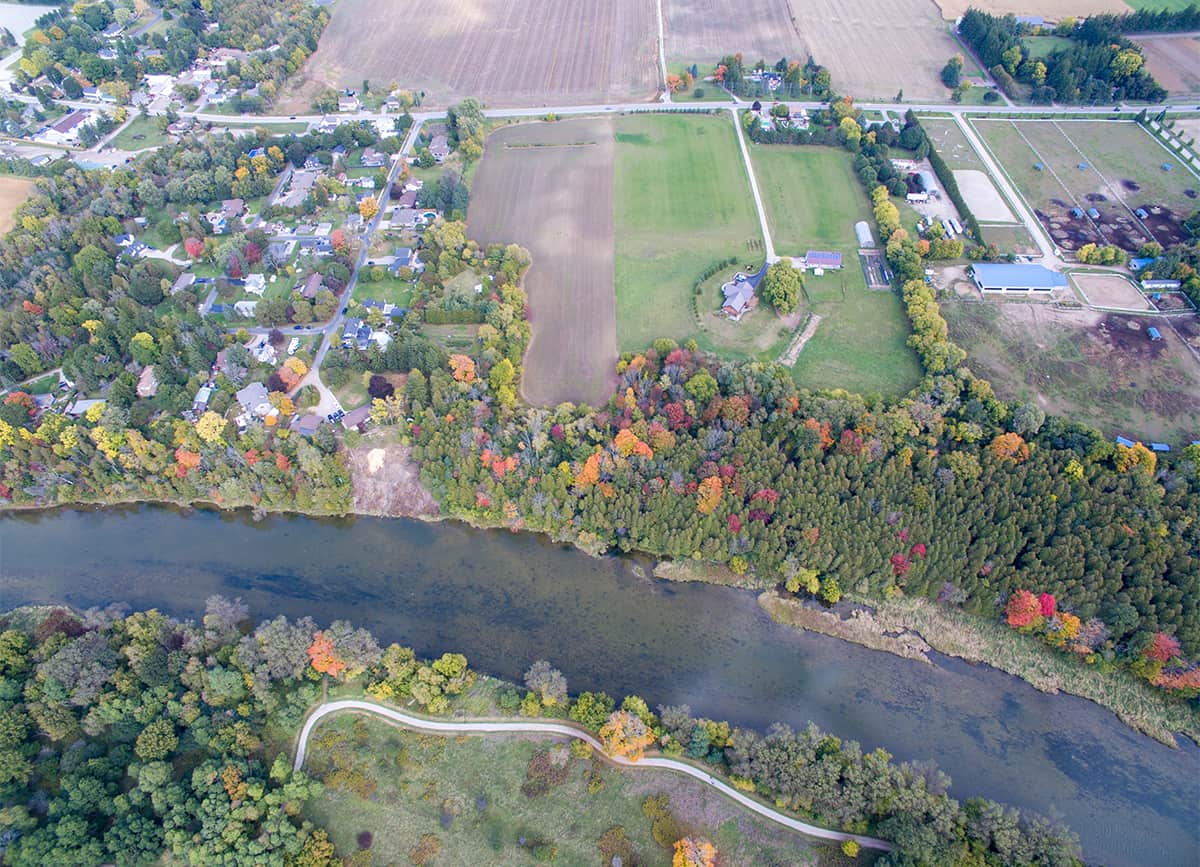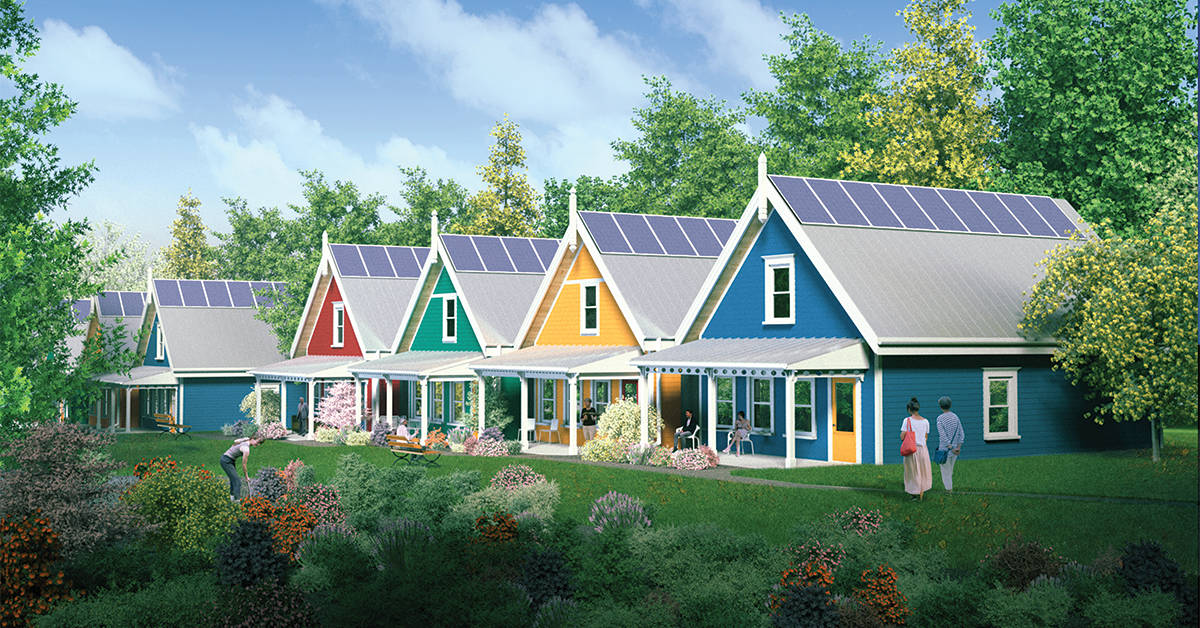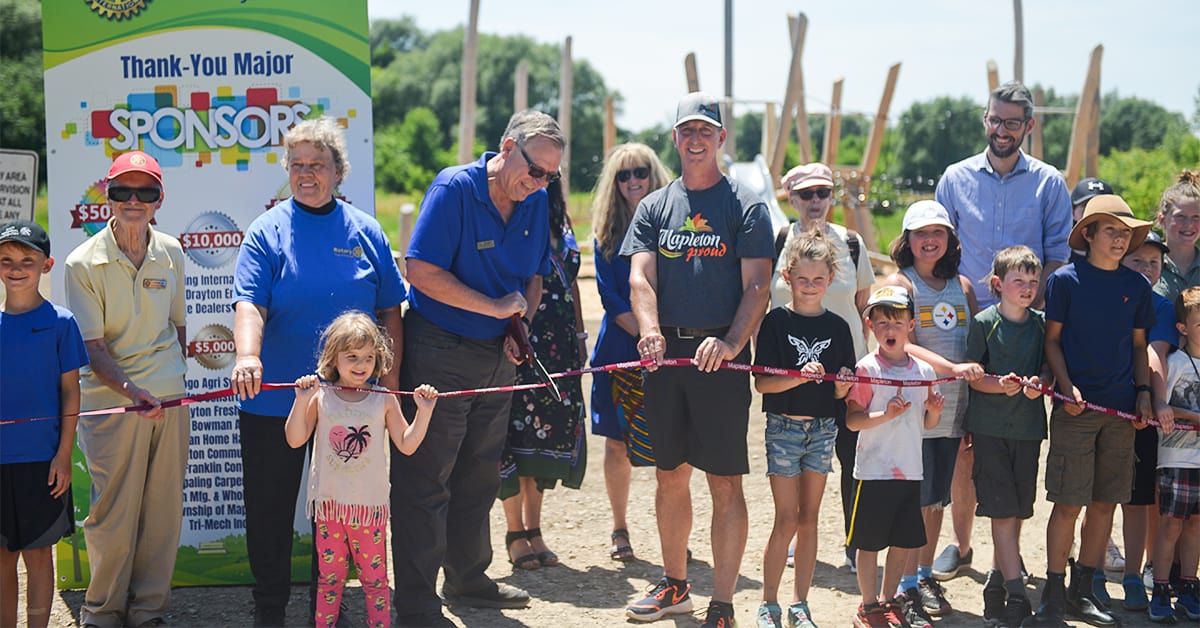The team behind the To Thrive Together sustainable living project in Bloomingdale are preparing their application for a zone change with the Region of Waterloo. The current hurdle is determining how wastewater will be treated onsite.

The group is proposing to use a communal system, which is defined as a sewage treatment system for more than five units that is unconnected to a municipal system, according to the province. But, communal systems are a ‘no-go’ for the region.
“The region follows the official plan, which prioritizes extending wastewater services through the municipal system and does not permit communal servicing,” said Stuart Gooden, a spokesperson for the region.
The group is proposing a Waterloo Biofilter System, which was designed at the University of Waterloo and is now manufactured in Guelph.
Marianne Wilson is the local sales and technical field representative for Waterloo Biofilter Systems. She says the company has installed units throughout the province and internationally, noting the water that comes out of these units is treated to a level IV for wastewater effluent quality criteria in the Ontario Building Code, the highest level.
That said, Wilson understands the region’s stance.
“The municipality is simply, and rightfully so, just wanting to make sure that everything is in place so that when the system is installed, that the system has a plan for longevity of operation, maintenance, and performance. Their concerns are a very standard concern of all municipalities in Ontario,” she said.
Gooden confirmed there were past negative experiences.
“The region has been required to take over private systems, which has led to challenges and costs to residents as those abandoned systems are brought up to municipal standards,” he said.
As a result, region staff prioritize extending municipal services.
“This approach offers the most protection for public health and the environment, given that municipal systems are legislated to operate at or above provincial standards.”
The Waterloo Biofilter works to treat wastewater by keeping it in an anaerobic digester and then dosing it over 24 hours into a permanent medium of specially developed foam cubes. These foam cubes aim to provide the ideal habitat for beneficial bacteria that break down organic matter, pollutants, ammonium and other contaminants in the wastewater, before the final treated water is released into surrounding soil.
“This process is significantly improved over conventional technology utilizing just septic tanks and weeping beds. In conventional technology, it’s the weeping bed that does the treatment. And so therefore, if something were not to be maintained in that kind of conventional sense, it’s too late, the sewage is already out there,” said Wilson.
“In a controlled level IV treatment unit, everything can be monitored in tanks and ensure that we can meet the performance markers before we discharge to the natural environment.”
The Waterloo Biofilter system can be monitored in real-time, 24/7, says Wilson.
Jill Simpson, the executive director of To Thrive Together, argues the Waterloo Biofilter communal wastewater system is safer than conventional septic systems largely because of this constant monitoring feature, whereas septic systems are typically installed and not regularly checked on.
“Condominium law is very, very clear that by law, we have to have money to repair (the system),” she said. “If they’re not happy with just the condominium law, we’ll put up a bond.”
Communal systems are acceptable to the province, according to the Provincial Policy Statement, which guides development in Ontario. It states that in areas where municipal sewage services are not available, planned or feasible, private communal sewage services are the preferred form of servicing for multi-unit/lot developments.
The To Thrive Together sustainable living project is a concept for a multi-generational community with small homes built to be as ecologically responsible as possible, and purpose-built so that elders can age in place. The idea for the project began to grow after Simpson and her husband Bob Dyck visited Lisbon, Portugal.
Simpson works as a facilitator with elders, and Dyck is an architect. At the time, much of his business involved designing retirement homes.
She said they asked their cab driver to take them to some retirement homes, “so we could just see how things were done there in Lisbon,” she said. “And we just couldn’t get that idea across.”
“And we were at a stoplight and (the cab driver) looked at me right in the rearview mirror. Our eyes made contact, and he said, ‘Let me get this straight. In Canada, you take old people and you put them away in separate buildings, like, until they die?’ And Bob and I were like, ‘Oh my God. Yes. That’s what we do.’”
Simpson said that when they got home, Dyck dropped his long-term care projects. The initial idea for To Thrive Together germinated between them, but it wasn’t until Dyck reconnected with an old colleague, Marjorie Paleshi, through LinkedIn, that the ball started rolling. Paleshi was involved in the management of the charity All Our Relations, which owned the site in Bloomingdale. The organization had been holding on to the land, waiting for the right project to come along.
Paleshi liked their idea, and together they formed To Thrive Together which was incorporated in 2019.









